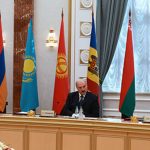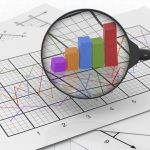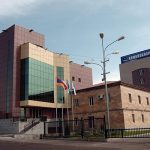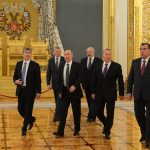- 11 August, 2016
- Eurasian Economic Union, Foreign Policy
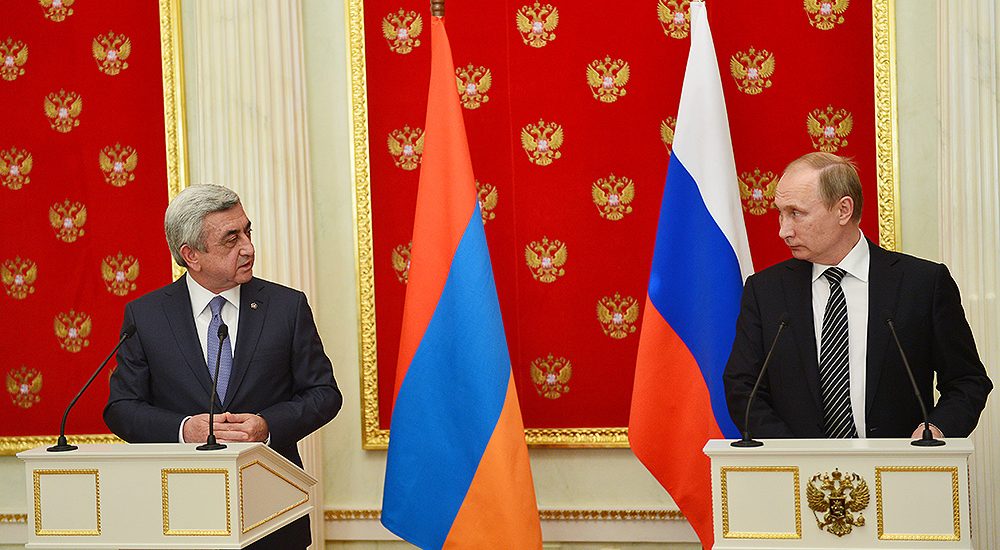
Yesterday the meeting of Armenian and Russian Presidents Serj Sargsyan and Vladimir Putin was held in Moscow. During the beginning of the meeting, the presidents made opening remarks in which they introduced quite “interesting” facts.
In particular, the Russian president claimed that “Armenia’s GDP has grown by 10% after its membership in EAEU”.
Armenia has been member of the EAEU since January 2, 2015. According to the Armenian Statistical Service data, the country’s GDP in 2014 formed 11.6 billion USD. However, that number suffered a considerable decline in 2015, dropping to 10.5 billion (exactly 10% decline).
Moreover, according to IMF data, Armenia’s GDP in 2016 will form 10.7 billion USD, i.e. 8% less than the data of the year 2014, which preceded the EAEU membership year.
This means that Armenia’s GDP has not increased by 10% since EAEU membership as Mr. Putin announced. On the contrary, it has suffered an 8% decline.
Shortly after, the Russian president’s example was followed by the Armenian president, who added that “our trade turnover has increased by 12% during six months and export from Armenia to Russia has increased by almost 90%”.
It is difficult to say what Sargsyan meant by saying “in six months”. If these six months is the first half of 2016, then our export to Russia in July has really been twice as much compared to January. But the reason does not lie in economic growth. Rather, it is caused by the fact that Armenian economy is always “dead” in January of each year. And even February can see a 60-70% growth compared to January.
Probably Sargsyan meant the growth of export rates compared to the same period in 2015. However, such a growth should be viewed against the backdrop of unprecedented regress in 2015 (so, the economy partly “recovered” in 2016).
But if we compare the period of EAEU membership with the same period of 2014, there is a 25% increase in export rate to Russia. However, that growth is related to the circumstance that the Turkish products banned in Russia in 2016 (for instance, tomatoes) are often imported to Armenia and then exported to Russia as Armenian products.
Hence, in contrast to his Russian colleague, Serj Sargsyan has chosen a more blurred and unclear terms, which complicate the unequivocal interpretation of his statements and confirmation of their verity. Anyway, such a statement may be widely perceived as a rapid economic growth, which is not true.
Consequently, we can state that Vladimir Putin obviously lied about the real state of Armenian economy. Meanwhile, Serj Sargsyan made a statement which is not a lie but which creates a misperception about Armenia’s economic growth among the public.
Daniel Ioannisyan, Hrayr Manukyan
“Union of Informed Citizens”

